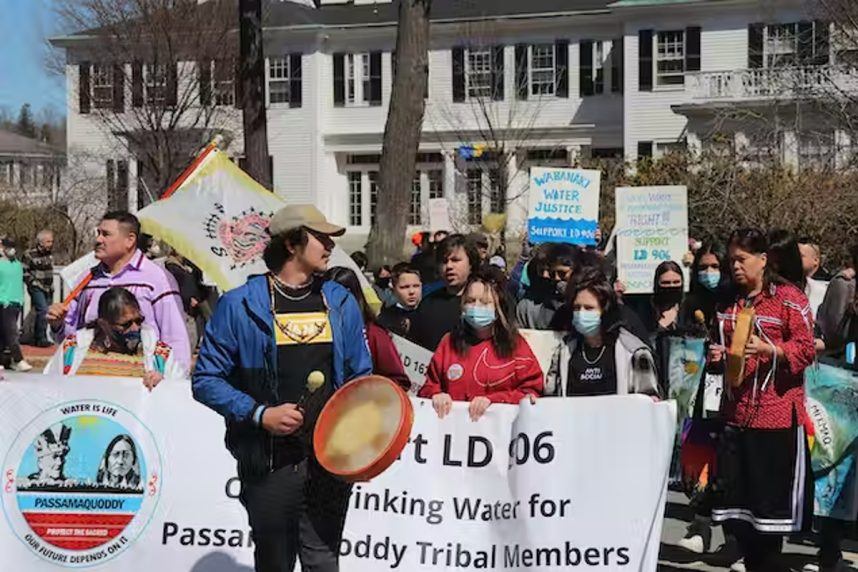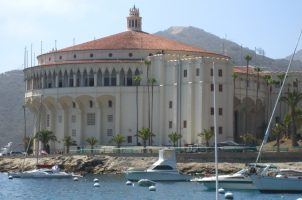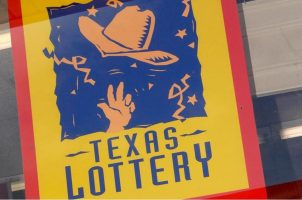Maine Tribes Seek iGaming Privileges After Launching Online Sportsbooks
Posted on: January 3, 2024, 10:00h.
Last updated on: January 3, 2024, 12:23h.
Online sports betting in Maine began last November after Gov. Janet Mills (D) signed legislation into law in May 2022. The edict allows the state’s federally recognized tribes to partner with sportsbook operators.

The 1980 Maine Indian Land Claims Settlement Act treats Native American communities more like municipalities than sovereign nations, as is the case in most other states. The federal law gave the four tribes $81.5 million in financial reparations for land the U.S. government took from the Native groups.
In exchange for the money, the tribes agreed to concede some of their federal Indian rights. That includes operating Indian casinos on their sovereign reservations regardless of class of gaming, as defined by the federal Indian Gaming Regulatory Act (IGRA), unless the state agrees to a gaming revenue-sharing agreement.
The tribes have been working with lobbyists in recent years to gain gaming privileges to better assure their economic futures. Mills, a staunch opponent of gaming, relented in 2022, agreeing to allow the tribes to gain exclusive rights to online sports betting.
Sports betting is prohibited at the state’s two commercial casinos, Hollywood Casino Hotel & Raceway in Bangor, and Oxford Casino Hotel near Lewiston.
iGaming Bills Introduced
The Maine State Legislature has convened in Augusta for its 2024 session. A bill has already been filed to expand the tribes’ gaming privileges to include iGaming with interactive slot machines and table games.
Legislative Document No. 1777 was introduced by Rep. Laura Supica (D-Bangor), whose district includes the Hollywood Casino. Supica wants to allow the state’s tribes to align with a third-party operator like DraftKings to run online casino games. The state would receive 10% of the gross win under the current bill’s text, as it does from online sports betting.
The Maine Gambling Control Board is supportive of more gaming via the internet. But its chairman, Steve Silver, says the state’s two commercial casinos should be welcomed in, too.
Maine absolutely should consider legalizing internet gaming,” Silver told the Portland Press Herald. Silver says an “open, free-market approach,” including both the casinos and the tribes, would be in the state’s best interest.
Rep. Ben Collings (D-Portland) thinks allowing the tribes to operate brick-and-mortar casinos makes more sense, and wouldn’t cannibalize play from the two commercial properties as much as iGaming. His bill, LD 1944, would allow the state to negotiate revenue-sharing terms with one or more tribes. The bill would prevent the tribes from opening a casino in Penobscot or Oxford counties, where commercial casinos operate.
Maine Sportsbooks
So far, two of Maine’s four tribes have debuted online sportsbooks. The Passamaquoddy Tribe partnered with DraftKings, and Caesars Sportsbook partnered with the Houlton Band of Maliseet Indians.
According to the U.S. Department of the Interior’s Bureau of Indian Affairs, the two other federally recognized tribes in Maine are the Mi’kmaq Nation and Penobscot Nation.
Despite being home to less than 1.4 million people and having no professional sports team in the big four, bettors wagered more than $38.6 million on sports through the two apps between December 1 and December 28, the most recently disclosed data set from the Maine Gambling Control Unit.
Maine takes a 10% cut of the net sportsbook win, which was only about $370K during the time frame.
Related News Articles
Radar, a Geofencing Firm, to Challenge GeoComply in US Gaming Space
New York Lawmakers Say State Can’t Afford to Fold on iGaming
WinStar World Casino Debuting Online Gaming App in Oklahoma
Michigan Online Casinos Experience Record November Due to Strike
Most Popular
Mega Millions Reportedly Mulling Substantial Ticket Price Increase
NoMad Hotel to Check Out of Park MGM on Las Vegas Strip
Most Commented
-
End of the Line for Las Vegas Monorail
— April 5, 2024 — 90 Comments -
Mega Millions Reportedly Mulling Substantial Ticket Price Increase
— April 16, 2024 — 9 Comments -
Sinclair Broadcast Group Selling 7.91 Million Bally’s Shares
— April 12, 2024 — 5 Comments
















No comments yet